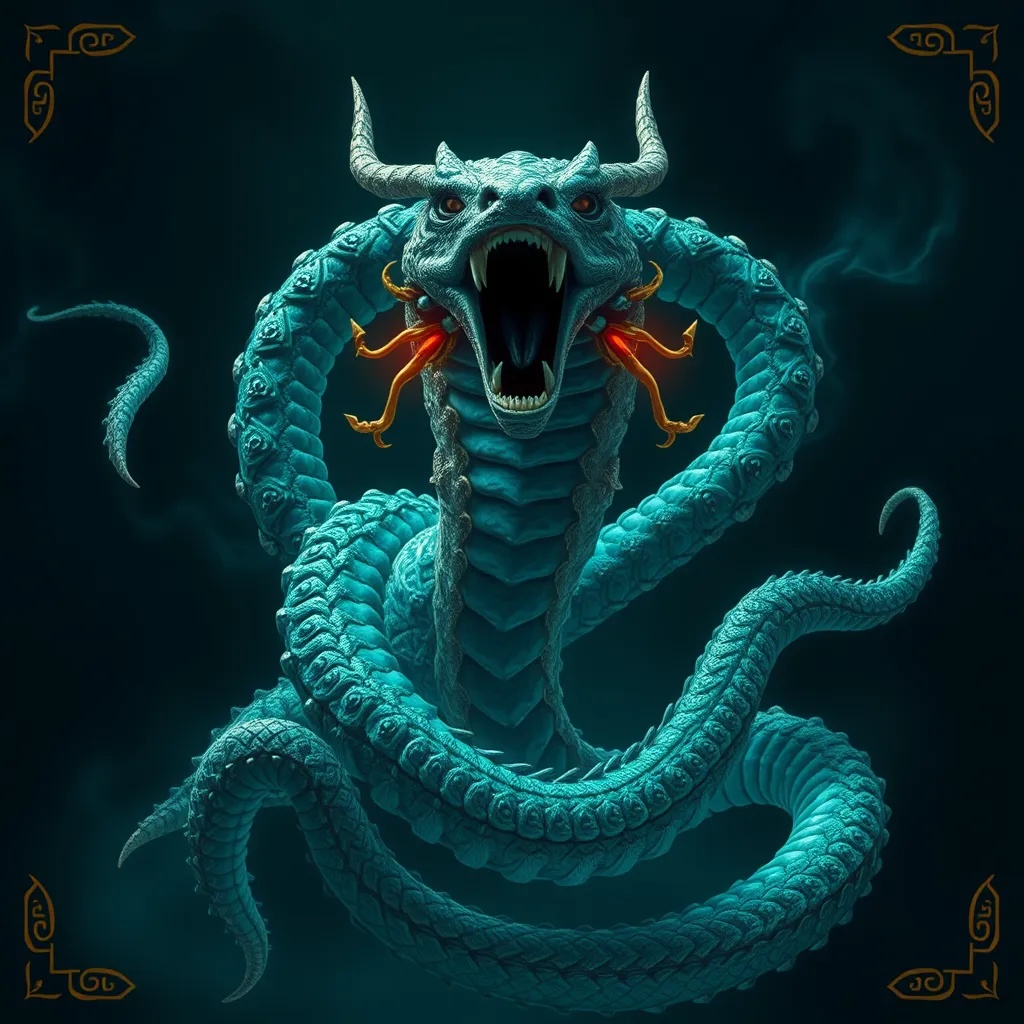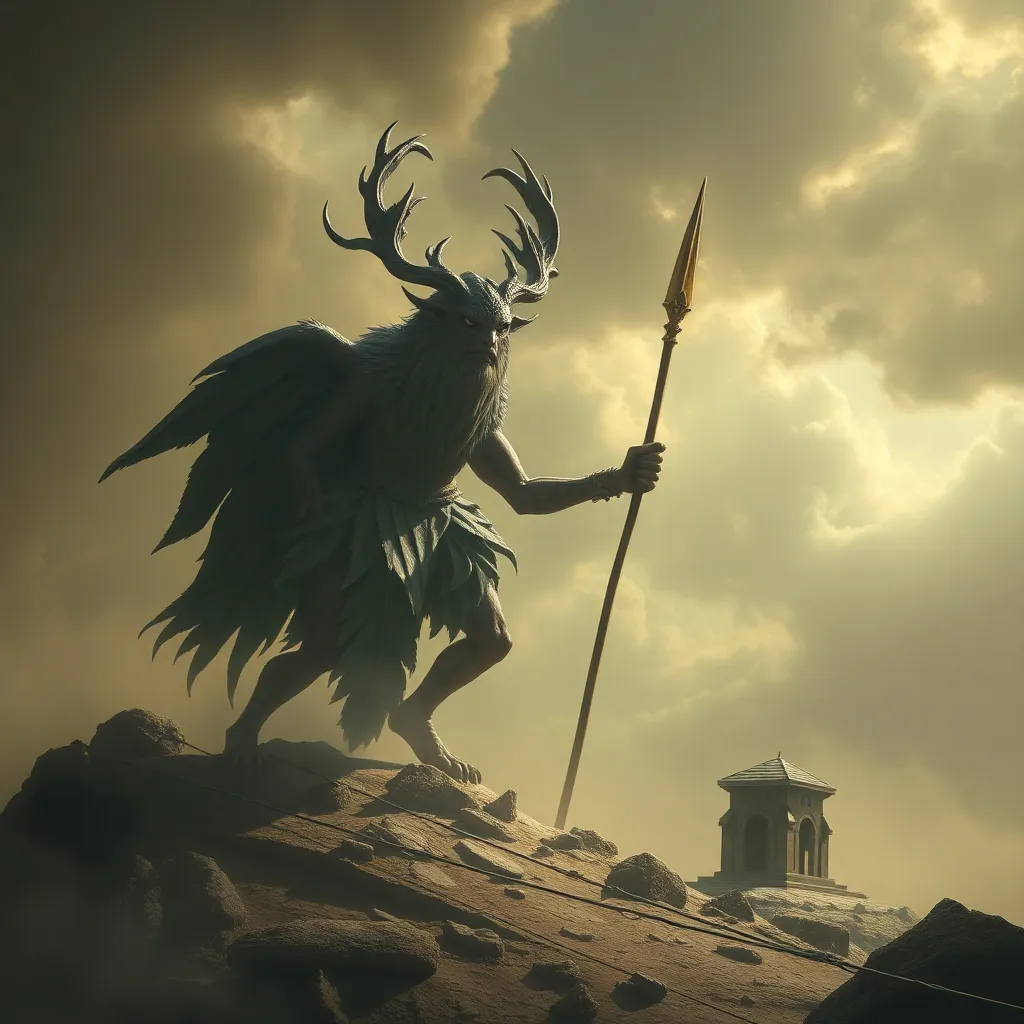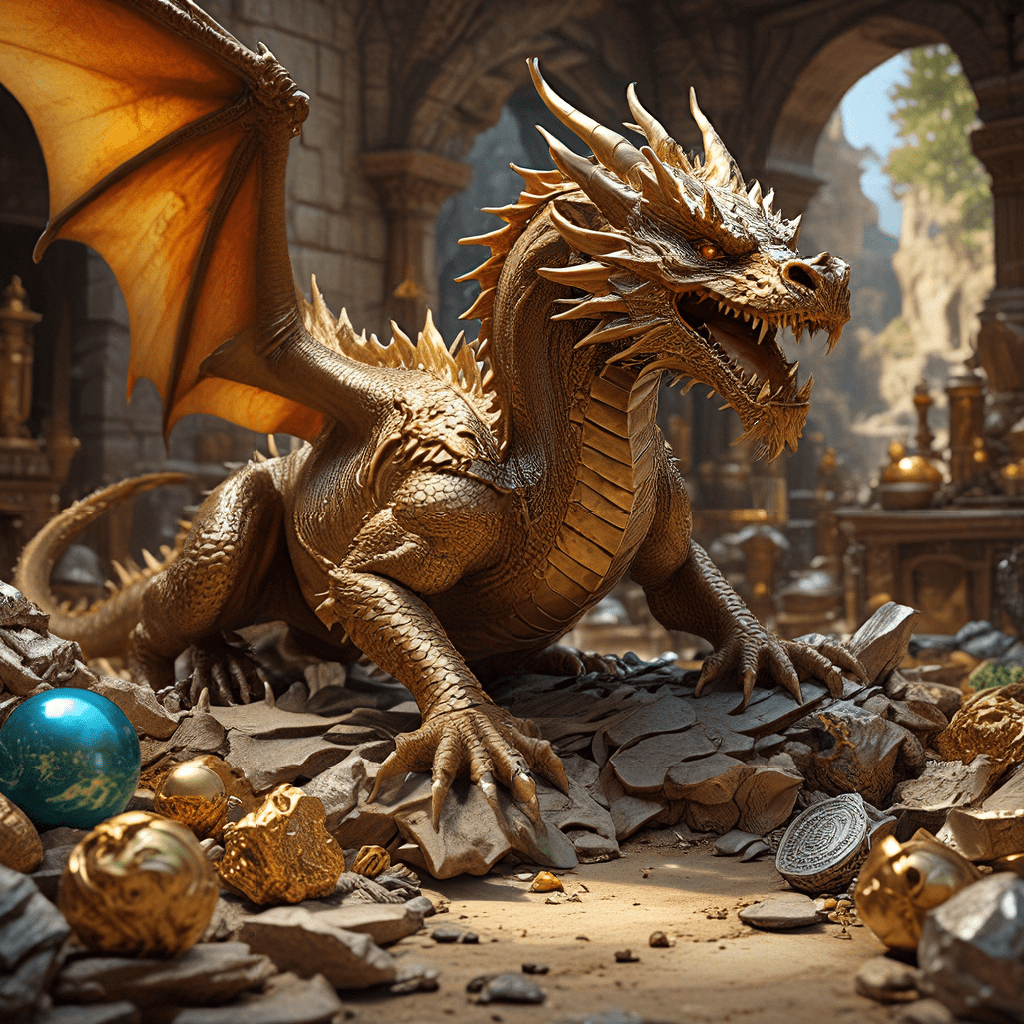The Hydra’s Secrets: Uncovering the Hidden Meanings and Symbolism in its Lore
I. Introduction
The Hydra is one of the most infamous creatures in Greek mythology, known for its fearsome appearance and regenerative abilities. As a multi-headed serpent-like monster, it has captivated the imaginations of storytellers and scholars alike. The study of the Hydra reveals not just a fascinating creature but also deep symbolic meanings that resonate through time.
Exploring the hidden meanings and symbolism associated with the Hydra allows us to gain insight into human nature, societal challenges, and the eternal struggle between good and evil. This article aims to delve into the Hydra’s mythological origins, its symbolism in ancient texts, its metaphorical representations in contemporary life, and the lessons we can learn from its lore.
II. The Mythological Origins of the Hydra
The Hydra is primarily known from Greek mythology, where it is often depicted as a fearsome creature with multiple heads. According to ancient texts, the Hydra dwelled in the swamps of Lerna and was slain by Heracles as one of his Twelve Labors. This myth illustrates the hero’s struggle against overwhelming odds and the concept of bravery in the face of danger.
In addition to Heracles’ encounter, the Hydra appears in various myths and legends, serving as a symbol of chaos and destruction. Different cultures have portrayed similar creatures, each reflecting their unique values and beliefs. For instance, in some Asian mythologies, multi-headed dragons symbolize power and protection.
III. Symbolism of the Hydra in Ancient Texts
In ancient texts, the Hydra is often seen as a representation of chaos and evil. Its many heads signify the complexity of malevolence and the challenges posed by overwhelming adversaries. The duality of the Hydra is particularly striking; while it embodies destruction, it also symbolizes regeneration and resilience. Each time a head is cut off, two more grow in its place, illustrating the idea that challenges can multiply when not properly addressed.
Moreover, the Hydra has connections to the underworld and the afterlife, often representing the struggles faced in death and the journey of the soul. Its regeneration symbolizes the cyclical nature of life and death, emphasizing the importance of confronting one’s fears and the inevitability of change.
IV. The Hydra as a Metaphor for Human Struggles
The multi-headed nature of the Hydra serves as a powerful metaphor for the various challenges individuals encounter in life. Just as Heracles faced the daunting task of defeating a creature that could regenerate, people often find themselves battling multiple issues that seem insurmountable.
- Overcoming Odds: The story of the Hydra encourages individuals to confront their fears and persevere through difficulties.
- Psychological Interpretations: The regenerative qualities of the Hydra can be viewed through a psychological lens, symbolizing the process of healing and growth following trauma.
This metaphorical interpretation of the Hydra reminds us that our struggles, while daunting, can lead to personal growth and resilience if we confront them with courage and determination.
V. The Hydra in Modern Culture and Media
The Hydra has found its way into modern literature, film, and art, often serving as a symbol of various societal issues. In contemporary storytelling, the Hydra represents not only the challenges we face but also the complexities of modern life.
- Literature: The Hydra appears in numerous works of fiction, often as a formidable foe that heroes must defeat, highlighting themes of bravery and sacrifice.
- Film: In movies, the Hydra is portrayed as a monstrous antagonist, embodying chaos and destruction that the protagonists must overcome.
- Art: Artists have depicted the Hydra in various forms, using its imagery to explore themes of duality, regeneration, and the human experience.
The Hydra’s symbolism continues to evolve, reflecting contemporary societal challenges such as environmental issues, political chaos, and personal struggles, making it a relevant figure in today’s world.
VI. Comparative Analysis: The Hydra and Other Mythical Creatures
When examining the Hydra, it is essential to compare it with other mythical creatures that share similar characteristics. For example, Cerberus, the multi-headed dog guarding the underworld, and the Chimera, a monstrous creature comprising different animals, also embody themes of chaos and the struggle between good and evil.
Across cultures, there are various Hydra-like creatures, such as:
- Shesha: In Hindu mythology, the serpent Shesha has multiple heads and represents cosmic order.
- Yamata-no-Orochi: A Japanese eight-headed serpent that exemplifies chaos and destruction.
These comparisons reveal universal themes of fear, chaos, and the human condition, illustrating how different cultures interpret similar concepts through their mythologies.
VII. Lessons from the Hydra’s Lore
The lore of the Hydra offers valuable lessons about resilience and adaptability. It teaches us that challenges are often cyclical and that growth can emerge from facing adversity. Individuals can derive several insights from the Hydra’s story:
- Resilience: Emphasizing the importance of bouncing back from setbacks.
- Cyclical Nature: Understanding that challenges often return in different forms, requiring ongoing effort and adaptation.
- Confronting Fears: Encouraging individuals to face their fears rather than allowing them to multiply unchecked.
These lessons resonate deeply in modern society, where individuals and communities frequently face complex challenges.
VIII. Conclusion
In conclusion, the Hydra stands as a significant figure in mythology, rich with symbolism and meaning. From its origins in ancient Greek myths to its representations in modern culture, the Hydra embodies the struggle against chaos, the importance of resilience, and the need to confront our challenges head-on.
As we reflect on the Hydra’s significance, it becomes clear that its lessons are relevant in contemporary life, encouraging us to explore mythological themes that continue to resonate today. By understanding the Hydra’s lore, we can gain insights into our own lives and the societal issues we face, fostering a deeper appreciation for the wisdom found in mythology.



